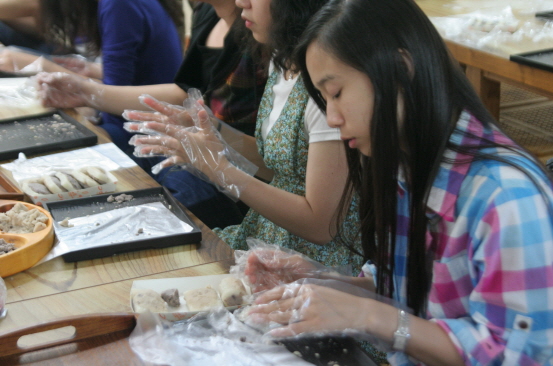Postech’s Residential College (RC) was founded in part to encourage extracurricular activities among freshmen and sophomores. The RC has held events like culture programs and voluntary services. RC days, with events planned before the semester, is especially designed for overall participation of residents, and until now, various programs like a cocktail bar, a field competition, and rural activities have been conducted.
For the fifth RC day, a traditional culture trip was held to give residents a new. Events included a one-day tour of the traditional Hahoe Folk Village, viewing of the famous Hahoe Mask Dance performance, and a simple craft making program following a tour guide. Most of the portion of the cost above 30,000 won was funded by the school.
Hahoe Folk Village
At noon, a tour bus reached Hahoe. From the hill, a winding river and peaceful village between rivers were seen. Hahoe is the village of Ryu clan, which has lived together there for 600 years. Now, there are 150 families living in village, which has been opened for tourists. Its architecture style reflects local features well. RC Master Prof. Ryu Chang-Mo explained, “Such historical education, in contrast to science and engineering, is very necessary for POSTECH students.” Suddenly, an unexpected group from Tanzania came in sight. They seemed to be really enjoying a fresh scene. After the tour, lunch, Andong Braised Chicken, which is famous for its spicy taste, was served. Residential Advisor Yang Jin-ho said, “With the surrounding natural environment, the cuisine was even more delicious.”
Mask Dance and Crafts


After the program, students came back to school. Student Park Young-joon said, “Today’s trip was so precious, with fresh experiences and the Mask Dance performance.” Andong is one of the most famous traditional tourist attractions in Korea. In fall, there is one of the biggest annual traditional festivals in Korea, the Andong Maskdance Festival. The chance for international people to experience Korean traditional culture there is always open.


